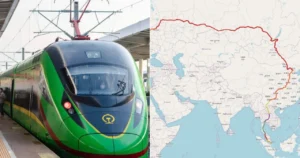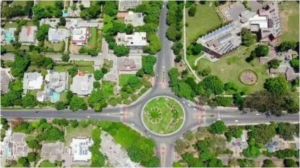Pandit Jawaharlal Nehru was the first Prime Minister of independent India. He played a key role in shaping the newly independent nation and served as Prime Minister from August 15, 1947, until his death on May 27, 1964. His tenure as Prime Minister lasted 17 years, making him one of the longest-serving heads of government in India.
Birth: Jawaharlal Nehru was born on November 14, 1889, in Allahabad (now in Uttar Pradesh), India, into a prominent Kashmiri Brahmin family. His father, Motilal Nehru, was a renowned lawyer and a prominent political figure.
Nehru was educated in England, attending Harrow School and later the Eton College. He then went on to study at Trinity College, Cambridge, and completed his degree in Natural Science.
Nehru later studied law at the Inner Temple in London. His education abroad exposed him to Western ideals and modern science, which influenced his vision for India’s future.
Nehru was deeply influenced by Mahatma Gandhi and joined the Indian National Congress in the early 1920s. He became a key member of the Indian freedom struggle and was a leading figure in the Indian National Congress (INC), working closely with Gandhi and other prominent leaders like Sardar Vallabhbhai Patel and Subhas Chandra Bose.
He was an ardent champion of socialism and nationalism. Nehru advocated for the independence of India through non-violent means, in line with Gandhi’s principles.
Leadership in the Freedom Struggle: Nehru was a key figure in the Indian National Congress and played an important role in leading India to independence from British colonial rule. He participated in multiple movements such as the Salt March, the Quit India Movement, and the Civil Disobedience Movement.
Imprisonment: Nehru was arrested several times by the British for his involvement in the independence struggle, spending significant periods in prison.
First Prime Minister: When India gained independence on August 15, 1947, Nehru was chosen as the first Prime Minister of India. He became the leader of a newly-formed democratic republic, tasked with leading a country that had been under colonial rule for nearly two centuries.
Nehru’s vision for India was of a modern, secular, and democratic nation. He was deeply influenced by Western ideals of democracy, socialism, and scientific progress.
He sought to build a mixed economy, combining both the public and private sectors to promote industrial growth. He was also a strong advocate for education, science, and technology as key drivers of national development.
Independence and Partition: As Prime Minister, Nehru oversaw India’s partition into India and Pakistan in 1947, an event marked by widespread violence and migration. Despite the challenges, Nehru managed to maintain India’s unity.
Constitution of India: He played a central role in framing the Indian Constitution, which came into effect on January 26, 1950, establishing India as a democratic republic.
Economic and Social Development: Nehru initiated several ambitious projects aimed at modernizing India’s infrastructure and industry, including the establishment of public sector enterprises and the construction of dams, factories, and educational institutions.
Five-Year Plans: Nehru’s government implemented Five-Year Plans to drive economic growth, focusing on heavy industry and agriculture.
Institutions: He was instrumental in establishing key institutions such as the Indian Institutes of Technology (IITs), the Indian Space Research Organisation (ISRO), and All India Institute of Medical Sciences (AIIMS).
Nehru’s foreign policy was based on the principles of non-alignment and peaceful coexistence, aiming to keep India independent from the Cold War rivalry between the United States and the Soviet Union.
He was a founding member of the Non-Aligned Movement (NAM), which sought to create a path for newly independent nations to avoid alignment with either of the major Cold War powers.
Kashmir Conflict: One of the most significant challenges of Nehru’s tenure was the Kashmir conflict with Pakistan. The issue has remained unresolved since the partition of India in 1947 and led to multiple wars between India and Pakistan.
China’s Aggression: Nehru’s policy of peaceful coexistence with neighboring countries was challenged in 1962 when China launched an attack on India, leading to the Sino-Indian War. The war ended with China gaining control over parts of disputed territory in Aksai Chin, and India’s defeat caused a significant shift in India’s foreign policy.
Social and Economic Challenges: While Nehru’s policies of state-led industrialization had some success, they also faced criticism for over-centralization, bureaucratic inefficiency, and lack of focus on rural development.
Pillar of Indian Democracy: Nehru is often regarded as the architect of modern India’s political system and institutions. His vision of a secular, democratic republic has been foundational in shaping India’s identity as a pluralistic society.
Global Impact: Nehru’s advocacy for non-alignment and global peace earned him respect as an influential statesman on the world stage, particularly in the post-World War II era when many countries were emerging from colonialism.
Nehru’s Daughter: Nehru’s legacy was carried forward by his daughter, Indira Gandhi, who became the first female Prime Minister of India and served in that role for over 15 years.
Pandit Jawaharlal Nehru was the first Prime Minister of independent India, serving from August 15, 1947, to his death in 1964. His leadership was instrumental in shaping the newly independent country, laying the foundation for its democratic institutions, economic development, and foreign policy. Nehru’s vision for India as a modern, secular, and democratic nation remains a cornerstone of India’s identity today. His tenure also established him as a global figure in the fight for peace and independence.







